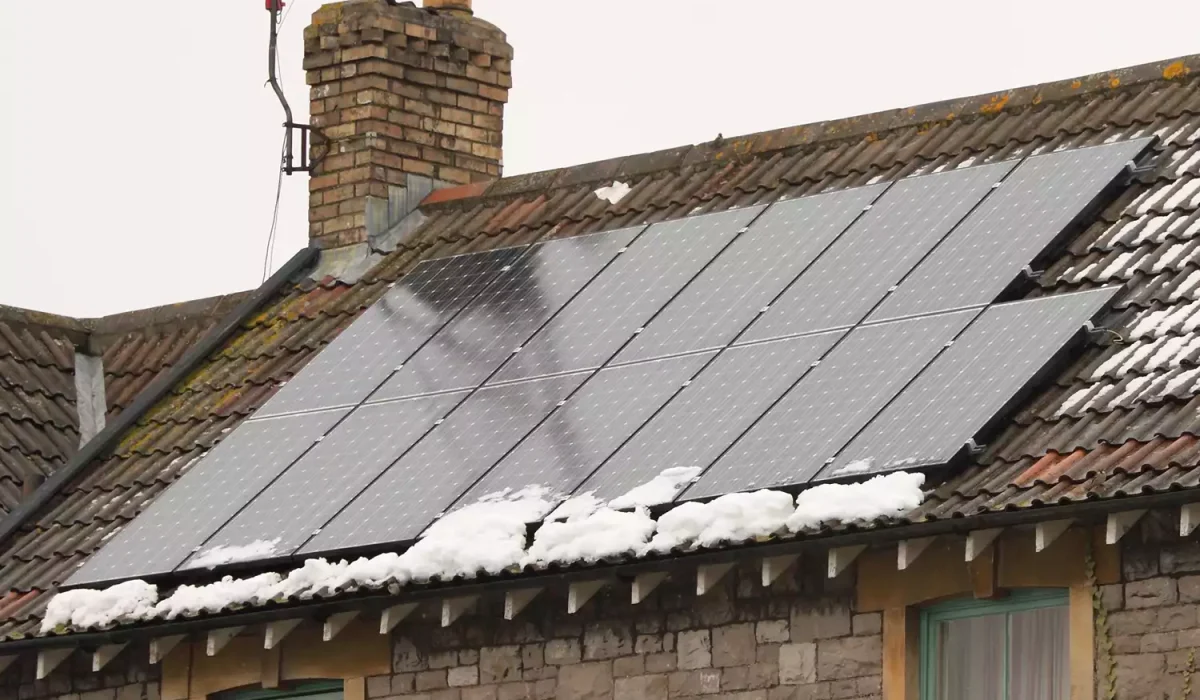Do Solar Panels Work In Winter?
One of the most common questions UK homeowners ask before investing in solar panels is: “Do solar panels work in winter?”
With fewer daylight hours, cloudy weather, and chilly temperatures, it’s natural to wonder whether solar panels can generate enough energy to make them worthwhile during the colder months.
The short answer is: yes, solar panels work in winter—but performance is lower compared to summer. In fact, modern solar technology is surprisingly efficient in cooler conditions. This guide explains how solar panels perform in winter, how much energy you can expect, and tips to maximise your system all year round.
Get Your FREE Quote for Solar Panels
Fill in our solar panel quote form, and within 24 hours we’ll design and cost a complete system tailored to your property.
How Solar Panels Generate Energy
To understand winter performance, it helps to recap how solar panels work.
-
Solar PV panels convert daylight (not heat) into electricity.
-
The photovoltaic cells generate current whenever light hits them.
-
An inverter converts this electricity into usable power for your home.
This means panels don’t need direct sunshine to function – they generate energy even on overcast days.
Do Solar Panels Work on Cloudy Days?
Yes. While solar panels produce less power on cloudy days, they still generate electricity because sunlight penetrates clouds.
-
On a bright but cloudy day, panels may generate 10–25% of their maximum capacity.
-
On clear, sunny winter days, generation can be surprisingly strong, even though daylight hours are shorter.
That’s because solar panels are sensitive to light, not heat.
Cold Weather Can Improve Efficiency
Here’s something many people don’t realise: solar panels actually perform better in cold weather.
High temperatures reduce panel efficiency slightly, but cool conditions keep the photovoltaic cells working at peak performance. This means that while total output is lower in winter due to shorter days, the efficiency of energy conversion is often higher than in summer.
How Much Energy Do Solar Panels Generate in Winter?
On average, solar panels in the UK generate around 20–30% of their annual output during winter (November–February).
For example, a typical 4kW system might produce:
-
July (summer peak): 400–500 kWh
-
December (winter low): 100–150 kWh
This is normal and factored into savings estimates when you receive a solar quote. Over the year, the higher summer output balances the lower winter generation.
Seasonal Variation in the UK
Solar energy production depends heavily on location and daylight hours:
-
In southern England, panels generate more winter energy than in northern Scotland.
-
Shorter days in December and January (as little as 7–8 hours of daylight) naturally limit generation.
-
By March, output begins to rise quickly as days get longer.
This seasonal variation is one reason many homeowners choose to add a solar battery to store surplus summer electricity for evening use in winter.
How to Maximise Solar Panel Performance in Winter
While you can’t control the weather, there are practical steps to get the most from your solar panels during winter:
1. Keep Panels Clear
Snow isn’t a major issue in most of the UK, but if it does settle, panels work once sunlight hits them as snow tends to slide off. Keeping panels clear of debris and leaves also helps.
2. Use Energy Efficiently
Plan high-usage activities (washing machines, dishwashers) for daylight hours when panels are generating.
3. Add Solar Battery Storage
Store daytime energy for evening use, reducing reliance on the grid when the sun sets early.
4. Consider Smart Energy Tariffs
Pair your solar system with a time-of-use tariff so you can top up with cheaper off-peak electricity during darker months.
Are Solar Panels Worth It If Winters Are Dark?
Absolutely. While winter output is lower, the annual performance of solar panels in the UK remains strong. A well-sized system can cover 50–70% of a household’s yearly electricity demand, depending on usage and storage.
What matters most is the total energy generated across the year—not just in December or January. With electricity prices still high, the summer surplus more than compensates for lower winter output.
Environmental Benefits in Winter
Even during winter, solar panels help reduce reliance on fossil fuels. Every kWh of renewable electricity generated avoids carbon emissions. Over the year, a 4kW system typically cuts around 1–1.5 tonnes of CO₂—equivalent to planting dozens of trees.
So, do solar panels work in winter? Yes. While shorter days and cloudy skies reduce generation, panels continue to produce electricity throughout the colder months. In fact, cooler temperatures improve efficiency, helping your system operate effectively all year round.
When averaged over the year, UK homeowners can still save £400–£800 annually on bills with a typical solar PV system, even accounting for lower winter performance. Adding a solar battery makes the system even more effective, allowing you to capture and use energy when you need it most.
At SolarPanels.co.uk, we connect you with trusted MCS-certified installers across the UK. If you’re considering solar panels, don’t let winter hold you back—solar power is a year-round investment in lower bills and a greener future.

